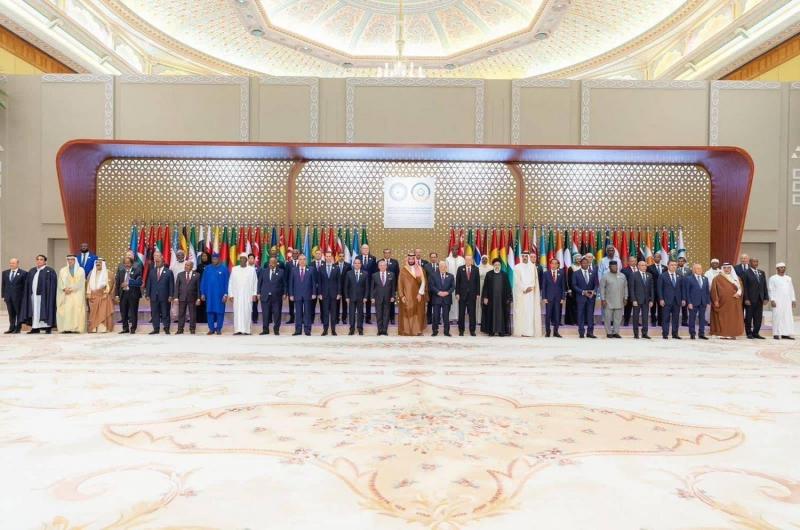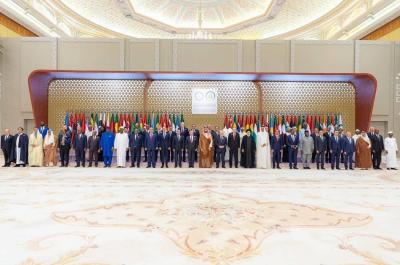We have been discussing the phrase "Arab cooperation" for several decades, and despite the historical turning points when Arab cooperation was indeed effective and tangible, particularly after the October 1973 war, there has been a significant decline in that spirit. The combined efforts of fighting countries and oil-rich nations created a strong framework that represented the essence of true Arab cooperation. After the 1973 war, oil-producing nations, especially led by Saudi Arabia under the late King Faisal bin Abdulaziz, took a decisive stand that reshaped not only the regional map but also the global landscape, as the oil embargo from Gulf States exerted immense pressure on Western countries. At that time, I was a PhD student in London and witnessed the dramatic impact of rising prices, which caused real panic in Western societies, leading to a famous slogan by American diplomat Henry Kissinger, "food for crude," and resulting in a global economic transformation with price surges that still resonate today.
I do not believe that Arab cooperation has reached a stage close to the strong national solidarity known in the aftermath of that victorious war. Observing our current surroundings, the scene is different, the environment has changed, and the Arab climate no longer enjoys the same robustness and cohesiveness that allowed for decisive action at the right time. Some observations can be made regarding the nature of Arab cooperation:
First: The emphasis on the nation-state has inevitably led to a greater focus on national identity, with Arab countries primarily seeking their own interests within their respective local contexts. This does not necessarily lead to complete coherence or regulated harmony aligned with the local interests of each nation. Let us acknowledge that general slogans are no longer effective in today’s diverse and changing world.
Second: Foreign targeting of the Arab decision-making, whether unilateral or cooperative, does not leave room for those unwilling to engage with foreign powers and their pressures. It is no secret that certain forces actively manipulate these foreign interests without limitation, as Western powers continue to gamble with Arab interests while striving to cement their influence in the region. Foreign ambitions persist in controlling energy, water, and Arab lands, critical resources for survival as we currently face a historical confrontation between East and West. New diplomatic expressions emerge that differ from previous paradigms, such as defending Semitism or the suffering represented by the label "Islamophobia."
Third: The developments we have witnessed in recent years are significantly influenced by a spirit of renewal among generations of educated individuals following waves of scholarships from Gulf countries, especially Saudi Arabia. Newly emerging cadres are inclined towards modernization and progress, which is a result we must acknowledge with pride. However, an undeniable issue lies in attempts to separate technological advancement from ideological belonging, as if there is an effort to dissociate modernization from spiritual identity. This division is complex, suggesting that modernity does not align with religious beliefs or that future directions do not coexist with historical heritage and prevailing ideas.
Fourth: New conflicts have begun to manifest in various forms from one country to another. With regard to the Renaissance Dam in Ethiopia, it impacts the flow of the Nile, which has run through its valley for thousands of years. There is also an aggression against identity, such as the southern African nations encroaching upon the north under the guise of migration. Sensitive questions arise, such as the current state of vast Libya and the future of Sudan amid ongoing emergencies and turmoil across the national map. The significant efforts exerted by some Arab countries could be an illusion if anti-reform and development currents prevail, crippling the will of the people and controlling their destinies as never before.
Fifth: The existence of Israel in the Arab region carries both implications and dangers. If we were to envision the region without the state of Israel, which relies on historical and religious claims despite not undergoing the same trajectories as other regional nations since inception, we would immediately realize that the establishment of Israel is the most serious event of the 20th and 21st centuries. Moreover, Israel is based on a racist ideology and does not seek true integration or coexistence with neighboring states. This is significant as it indicates that Israel wishes to exist in a "ghetto" amidst a vast surroundings of Arab entities that share common national attributes, which Israel interacts with reluctantly. This indicates the absence of a genuine coexistence scenario, which does not appear to be imminent despite conditions in West Asia and North Africa suggesting the possibility of achieving it. Additionally, I dare to state that what has transpired in Gaza since October 7, 2023, reinforces the view that the escalation of a specific crisis and heightened confrontation leads to a moment of collision that eventually resolves itself. Recent events have compelled global decision-makers to find a fundamental solution, encapsulated by the old saying, "The tighter the crisis, the sooner it resolves." Thus, all, including the Jews themselves, have come to realize that ongoing bloody military confrontations will not yield reasonable solutions that serve peace and security in the region or pave the way for shared coexistence. While we lack magical solutions to what the region faces, the undeniable fact remains that lasting peace is a final solution, no matter how long it takes.
Sixth: While Israel occupies the land, Arabs have other cards to play. Normalization with Israel is critically important and represents significant Arab leverage, generating a sense of strength on the opposite side, thereby greatly influencing the future outlook and nature of potential coexistence once the guns are silenced and real peace comes into sight.
Seventh: Working under international legitimacy now offers wide hopes, especially given the ground gained by the Palestinian cause in recent months, along with the bravery and sacrifices made by Palestinians—men, women, and children—for their homeland. We believe that the world has changed, and Palestinians have gained recognition within many contemporary states. Conversely, Israel has lost much of the favorable image it once had, portraying itself as a unique entity in the Middle East besieged by neighbors aiming to eliminate it. This is a great myth that has long ceased to exist.
These are some highlights of what we hope to achieve through unacknowledged Arab cooperation, learning from the past, reflecting on the present, and envisioning the future.




